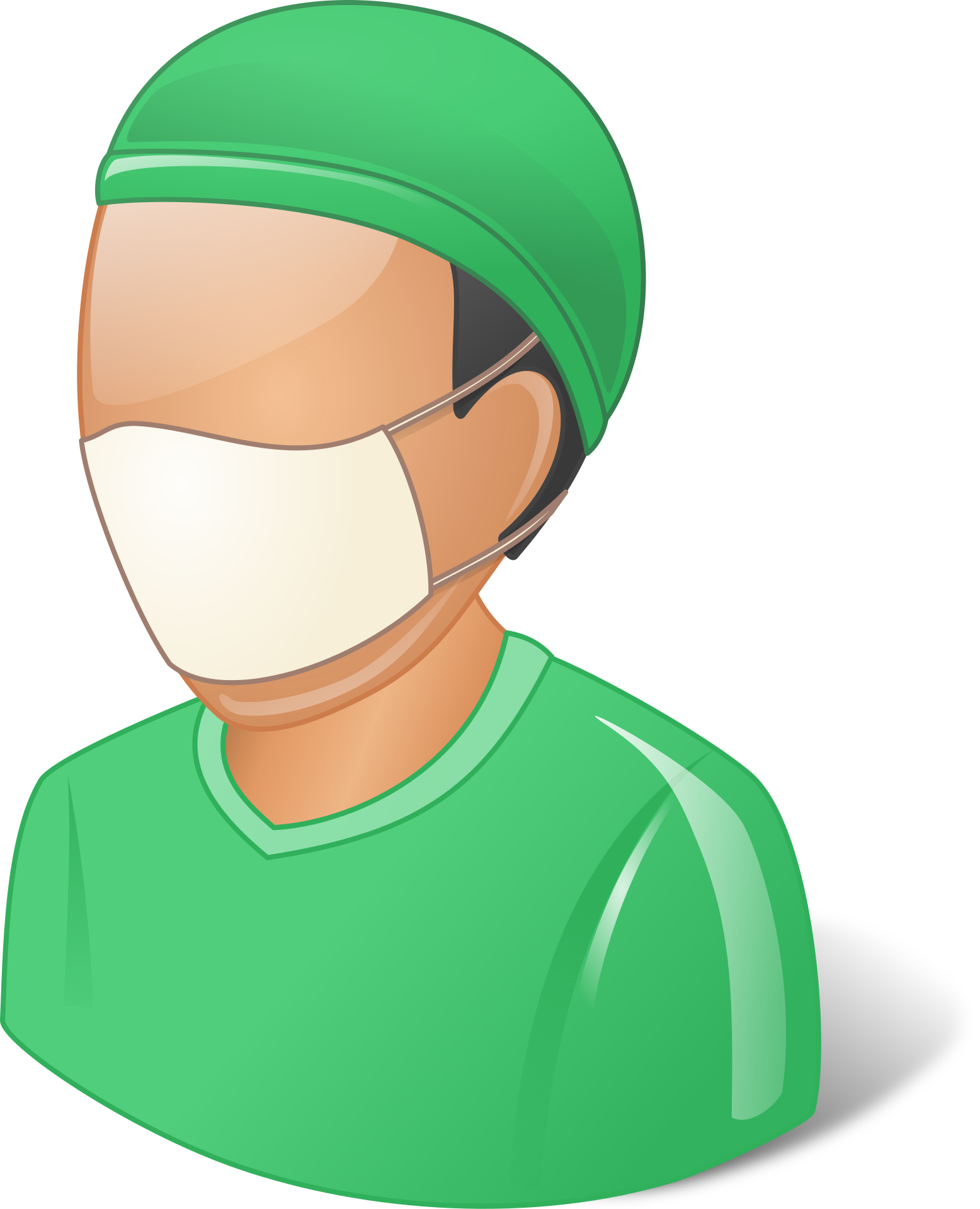If you’ve never heard about the relationship between hormonal birth control and antidepressants, you aren’t alone.
Read on to discover how they interact with each other and how you could be affected.
A number of hormonal contraceptive methods can interact with some medications used to treat depression. This includes:
However, there appears to be no effect when using an intrauterine device (IUD) or contraceptive shot.
“The good news is that there are
“These antidepressants include serotonin reuptake inhibitors (SSRIs), such as fluoxetine, citalopram, escitalopram, and sertraline, and serotonin-norepinephrine reuptake inhibitors (SNRIs), such as venlafaxine and duloxetine.”
That means that any of the above antidepressants shouldn’t impact the effectiveness of your birth control.
However, there may be interactions with tricyclic antidepressants (TCAs), like amitriptyline or nortriptyline, “which are much less commonly prescribed these days,” Lee says.
Similarly, interactions between birth control and monoamine oxidase inhibitors (MAOIs), like phenelzine and tranylcypromine, and St. John’s Wort — an herbal remedy used to treat depression — have
been noted .
“When you take contraceptive hormones, these products are broken down daily by your liver enzymes and then excreted from the body,” Lee explains.
“Liver enzyme-inducing drugs, such as St. John’s Wort, stimulate the liver enzymes to become more active, leading to a reduction in the level of contraceptive hormones in the bloodstream.
“These low levels of estrogen and progesterone may be inadequate to stop you ovulating, and this then increases the risk of an unplanned pregnancy.”
The only kinds of contraceptives that aren’t affected are IUDs and the shot.
If you take St. John’s Wort, know that you’ll need to use a non-hormonal form of contraception, such as condoms, until 28 days after stopping the remedy.
However, there isn’t much research into whether birth control can impact antidepressant effectiveness. As Lee states, “the effect of taking reproductive hormones on SSRIs is complex and not well understood.”
According to the
For the antidepressants that don’t appear to interact with birth control — the SSRIs and SNRIs — there shouldn’t be a difference in side effects.
But TCAs and MAOIs used alongside hormonal contraceptives may
Taking St. John’s Wort and a contraceptive pill can also result in side effects, like menstrual irregularities and
Again, there needs to be more research into why this may occur.
Strangely enough, there may be positive effects, too. But there’s conflicting evidence.
A
And, Lee says, “
But a 2019 review said it was likely that hormonal contraception can have adverse mood-related side effects in people with a history of depressive episodes.
This is yet another area that requires further studying.
There are two main reasons: There isn’t a lot of research into it, and it’s rarely discussed in healthcare appointments.
Lee highlights a
The authors “point out that, to date, mental health hasn’t been given enough priority in the context of the field of contraception, and there are many research gaps,” she says.
One of the
So, why aren’t there many more studies?
“There are particular problems associated with running mental health trials,” Lee says. “Typically, the trials are hard to recruit for, largely due to the stigma still associated with a diagnosis of a mental health condition.”
Plus, she adds, “research into women’s health has long been
This isn’t helped by the fact that depression “may be overlooked or not even acknowledged in a busy sexual health clinic.”
Every person has varying hormone levels and bodily reactions, so it’s hard to say for certain.
“There’s no way of predicting how you’ll feel on both,” Lee says. “The only way to know is to try.”
However, there are a few pointers to stick to.
First, Lee says, “it’s always important to check carefully if it’s safe to take any regular medication at the same time as using hormonal contraception.”
Then, it’s best to introduce one new drug at a time. “Otherwise, if you start two or more drugs at the same time, it can be difficult if you get side effects to know which one is the culprit.”
Common contraceptive side effects include:
- headache
- nausea
- chest tenderness
With antidepressants, side effects can range. Some side effects include:
- headache
- dizziness
- drowsiness
Lee adds that most side effects of the oral contraceptive pill “are mild and disappear within a few months of starting.”
Side effects from antidepressants “are also likely to improve with time.”
The best thing to do is speak with a doctor or other healthcare professional before taking both birth control and antidepressants.
Be open with them about all the medications you’re taking, any history of mental health conditions, and how you’re currently feeling.
They can then recommend either a form of birth control or an antidepressant that will suit you best.
Once you’ve started both forms of medication, Lee advises keeping a diary and writing how you feel in it every day, including any new symptoms.
If side effects appear, “this means you have written proof as evidence to show the doctor.”
They may alter dosages, discuss changing methods, and see if non-pharmacological therapies can help.
Both birth control and antidepressants can come with emotional side effects other than depression. Try to keep a diary of how you’re feeling and see a doctor if you’re concerned.
They may recommend changing your dosage or swapping to a new medication or contraceptive that has less of a chance of causing emotional effects.
In a
The review authors noted that it was impossible to say if these effects were directly caused by hormonal birth control due to a lack of research.
Conversely, a
However, you’ll find mood changes listed as a possible side effect by contraceptive pill and ring manufacturers.
With antidepressants, some users have reported suicidal thoughts and emotional numbness.
A 2014 study of more than 1,800 people taking antidepressants found that over half of 18 to 25-year-olds had suicidal feelings.
And over half of the total participants said they didn’t feel like themselves, with 42 percent reporting a “reduction in positive feelings.”
Suicidal thoughts are more commonly linked to SSRI antidepressants, but they can be a side effect of any form.
As the above study suggested, there’s more of a risk with younger people. Plus, side effects are more likely when you first start taking antidepressants or change your dosage.
If you do start to experience emotional changes or suicidal thoughts, contact a healthcare professional straight away.
Use the support of family and friends, too — they may start to notice changes before you do.
Changing to a combination that’s known to have zero interactions
“If you’re very happy with your contraception, have been on it sometime, and really don’t want to change it, I would suggest swapping the antidepressant,” Lee says. “However, it depends on each person’s situation and the specific side effects they’re experiencing.”
If you’re interested in seeing whether your side effects are down to your contraceptive or antidepressant, you can try changing to the non-hormonal copper IUD and continue with your normal antidepressant to see if your symptoms improve.
“Time is a tool,” Lee notes. “It usually takes 4 to 6 weeks for drugs and hormones to be completely out of your system, so always wait about 3 months after swapping before you decide if things are better or worse.”
Remember: If you want to prevent pregnancy, talk with a healthcare professional before stopping any contraception.
Some forms of birth control, like the pill, can be stopped right away, though it can be best to wait until the end of the pack or cycle to help avoid irregular bleeding and predict your next period.
Others, like the implant and IUD, require a doctor or other healthcare professional to remove them.
In most cases, the hormones leave your body within a few days. That means you’ll need to use a non-hormonal form of contraception or a barrier method, like condoms, straight away if you want to prevent pregnancy.
In the case of the shot, the birth control effects can last a lot longer — around 3 months.
Unfortunately, some people do experience side effects as a result of coming off birth control. Menstrual changes are common, and can come in the form of irregular periods, spotting, and lighter or heavier bleeding.
Conditions that you experienced before starting birth control, like acne breakouts, may also reappear. On the other hand, any negative side effects of your hormonal contraceptive should disappear.
If you’re finding the changes difficult to cope with or haven’t had a regular period 3 months after stopping, connect with a healthcare professional for advice.
There’s still much to learn about the relationship between birth control and antidepressants.
For now, you’re safe to take the more modern antidepressant types, such as SSRIs and SNRIs, with any form of contraception.
But no matter what combination you choose, always seek advice from a healthcare professional before starting, swapping, or stopping any medication.
Lauren Sharkey is a U.K.-based journalist and author specializing in women’s issues. When she isn’t trying to discover a way to banish migraines, she can be found uncovering the answers to your lurking health questions. She has also written a book profiling young female activists across the globe and is currently building a community of such resisters. Catch her on Twitter.

